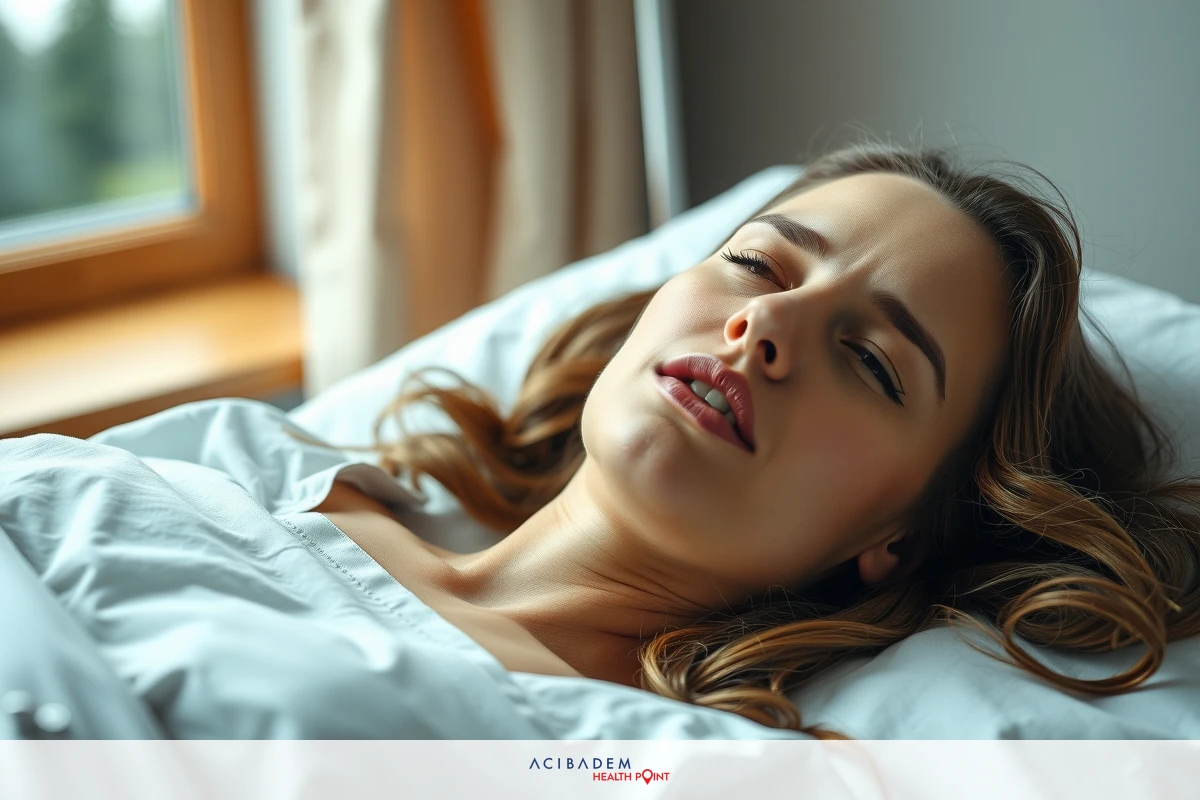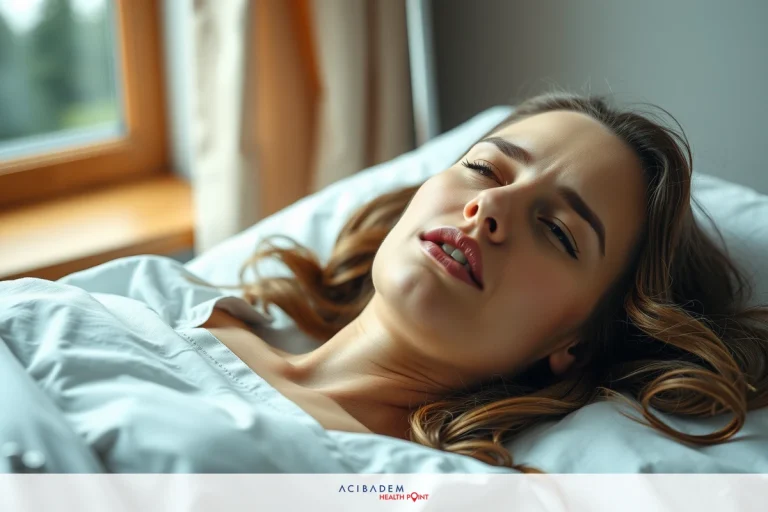How to Yawn After Rhinoplasty
How to Yawn After Rhinoplasty After a rhinoplasty operation, it’s normal to experience some discomfort when yawning. This is due to the adjustments made during the surgery, which can affect your nasal passages and surrounding tissues. Yawning, which involves opening the mouth wide and inhaling deeply, can put pressure on these sensitive areas.
But don’t worry, there are ways to manage this discomfort. This article offers practical tips and techniques to help you yawn safely after your rhinoplasty. It also provides advice on how to prepare for yawning and manage any related discomfort effectively. With the right approach, you can ensure that your recovery from rhinoplasty is as smooth and comfortable as possible.
Preparing for Yawning
In the post-operative phase after rhinoplasty, preparing yourself for yawning is crucial to ensure a comfortable recovery. One of the first steps in this preparation is to understand that yawning will feel different than before the surgery. This is a normal part of the healing process as your body adjusts to the changes made during the rhinoplasty procedure. It’s also important to remember that while yawning might cause some discomfort, it should not result in severe pain. If you experience intense pain while yawning, it’s advisable to consult your surgeon or a medical professional.
Another way to prepare for yawning after rhinoplasty involves practicing mindful breathing. Focusing on slow, controlled breaths can help reduce the frequency of yawning and minimize discomfort when it does occur. Practicing these breathing exercises regularly can help train your body to adopt these new habits, leading to a smoother recovery process. Staying well-hydrated can also reduce the need for yawning by keeping your throat moist and comfortable.
It might be helpful to keep some soft tissues or a handkerchief nearby, especially during the initial stages of recovery. After rhinoplasty, yawning can occasionally lead to slight nasal discharge due to the changes in your nasal passages. Having tissues handy can help you deal with this minor inconvenience promptly and hygienically, thus promoting a healthier recovery environment.
Preparing for yawning after rhinoplasty involves understanding what to expect, practicing controlled breathing, staying hydrated, and being ready for possible nasal discharge. By following these tips, you can navigate the post-operative phase more comfortably and ensure an efficient recovery from your surgery.
Techniques for Yawning
Yawning after a rhinoplasty can sometimes be accompanied by discomfort due to the healing process underway in your nasal passages. Thankfully, there are several techniques that can be employed to minimize discomfort and support your recovery. These methods focus on altering the way you yawn and providing relief to your nasal area during this involuntary action.
- Controlled Yawning: Try to control your yawning by opening your mouth slowly and gently. This can reduce the strain on your healing nasal tissues and decrease discomfort.
- Support Your Nose: Lightly press down on the tip of your nose while yawning. This provides some support to your nasal structures, helping to mitigate any potential discomfort.
- Mindful Breathing: As mentioned in the previous section, mindful breathing exercises can help reduce the frequency of yawning. Practice taking slow, deep breaths through your mouth instead of your nose.
- Stay Hydrated: Keeping yourself well-hydrated can help prevent dryness in your throat, which could otherwise trigger more frequent yawning.

The image shows a woman lying down with her eyes closed, appearing to be in deep sleep or relaxation. The room has natural light coming through the window blinds and a warm ambiance indicated by soft color tones. - Rest Your Jaw: If possible, try to rest your jaw before and after yawning. This can help minimize any additional strain caused by the action of yawning.
- Use a Humidifier: A humidifier can help keep your throat and nasal passages moist, reducing the need for yawning due to dryness.
By incorporating these techniques into your post-operative routine, you can manage yawning more comfortably during your recovery from rhinoplasty. Remember, it’s always important to consult with your healthcare provider if you have any concerns or if discomfort persists despite trying these techniques.
Managing Discomfort
After undergoing a rhinoplasty procedure, managing discomfort while yawning is an important part of your recovery journey. The first step to effectively manage this discomfort is to understand that it’s a normal part of the healing process. Yawning after rhinoplasty might feel different due to the changes made in your nasal passages during the surgery. However, if you experience severe pain while yawning, it’s crucial to contact your healthcare provider immediately.
Various methods can help alleviate any discomfort you might feel when yawning postrhinoplasty. For instance, over-the-counter pain relief medications can be effective for managing minor discomfort. It’s always a good idea to consult with your surgeon or pharmacist before starting any new medication to ensure it won’t interfere with your recovery process. Using a cold compress on your face can also offer some relief from discomfort. The cold can help reduce inflammation and numb the area slightly, which may make yawning a bit more comfortable.
These methods, practicing mindful breathing exercises can also aid in managing discomfort associated with yawning. By focusing on slow, controlled breaths through your mouth rather than your nose, you can minimize the frequency of yawning and reduce strain on your healing nasal tissues. Keeping yourself well-hydrated is another helpful tip as it prevents dryness in your throat that could trigger frequent yawning.
Remember, patience is key during this phase of recovery. With each passing day, the discomfort will lessen as your body continues to heal from the surgery. Following these tips for managing discomfort can help make your recovery process smoother and more comfortable. Always reach out to your healthcare provider with any concerns or questions about your recovery from rhinoplasty.
Frequently Asked Questions
Will yawning after rhinoplasty damage my results?
Yawning itself will not damage the results of your rhinoplasty. It is important to be mindful and take precautions to minimize any discomfort or strain on your healing nasal tissues. Following the techniques and tips mentioned earlier can help you yawning more comfortably while supporting your recovery process.
How long will the discomfort during yawning last after rhinoplasty?
The duration of discomfort during yawning can vary from person to person. In most cases, the discomfort should gradually improve over time as your nasal passages heal. It is common for the discomfort to subside within a few weeks to a couple of months post- surgery. If you experience persistent or worsening pain, it is advisable to consult with your surgeon for an evaluation.
Can I use nasal sprays or decongestants to alleviate discomfort when yawning?
It is generally recommended to avoid using nasal sprays or decongestants without consulting with your healthcare provider first, especially during the initial stages of recovery. These products may have specific instructions related to their use after rhinoplasty surgery. Your surgeon can provide guidance on whether it is safe and appropriate for you to use these products based on your individual circumstances.
Are there any exercises that can help reduce discomfort during yawning after rhinoplasty?
While there are no specific exercises designed solely for managing discomfort during yawning after rhinoplasty, practicing mindful breathing exercises can be beneficial. Focusing on slow, controlled breaths through your mouth rather than your nose can help minimize the frequency of yawning and reduce strain on your healing nasal tissues.
When can I expect to yawn without discomfort after rhinoplasty?
Every individual's healing process is unique, and the timing of when you can yawn without discomfort may vary. In general, most patients find that the discomfort during yawning gradually decreases over time. It is important to be patient and allow your body enough time to heal fully. If you have concerns about the duration of your discomfort, it is best to consult with your surgeon for personalized advice.











